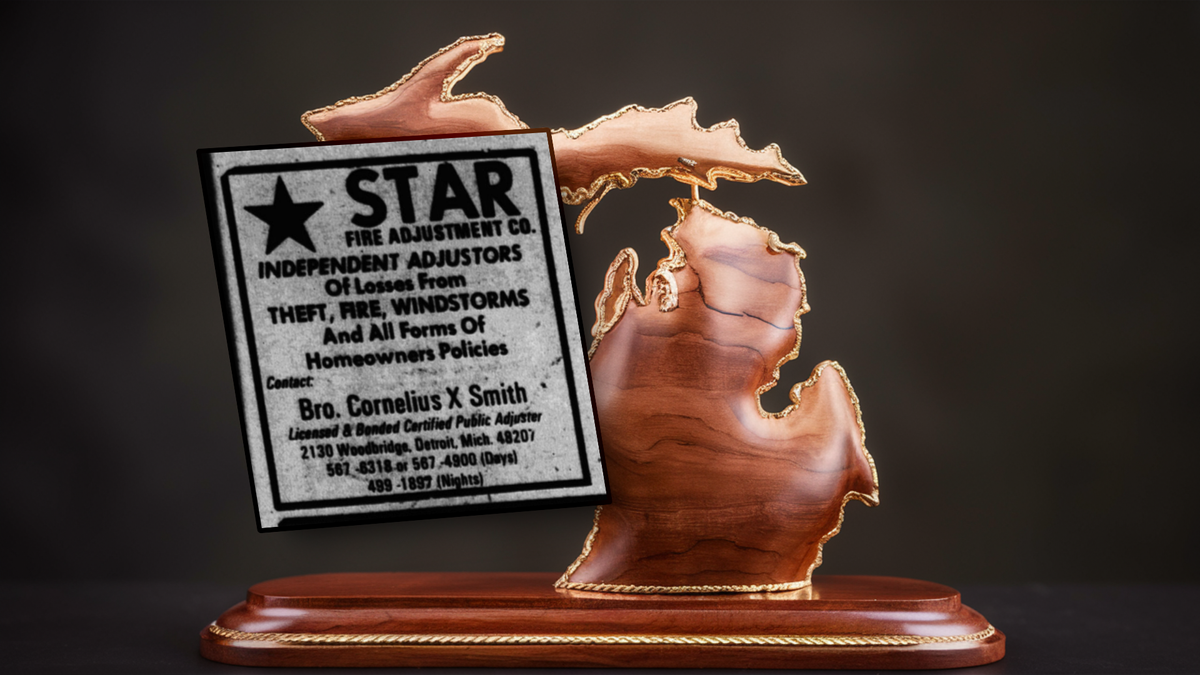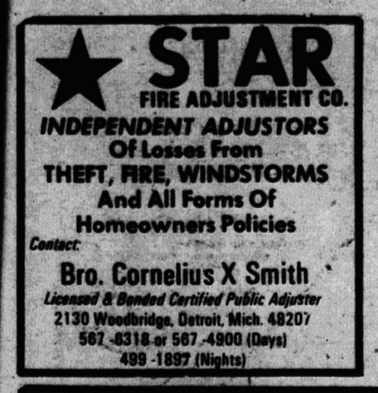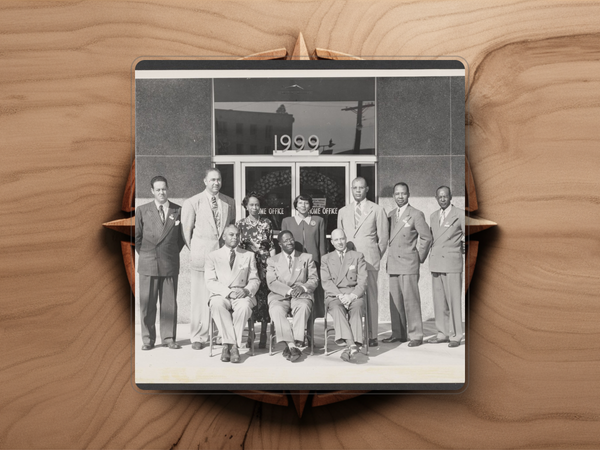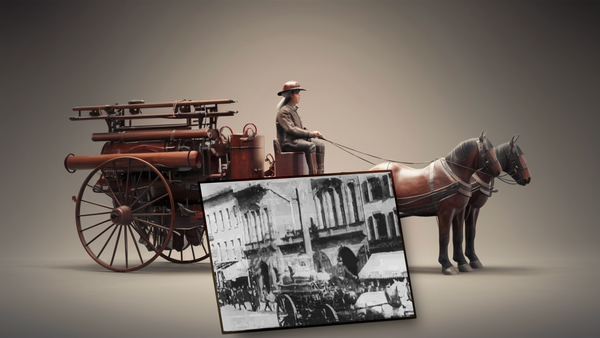Diversity in Early Public Adjusting: 1970s Detroit, Michigan
Learn about public adjusting history through this micro look at an advertisement from an African American public adjuster in Detroit, MI in 1971.

Historical Document Note: The advertisements discussed in this article appeared in Muhammad Speaks (August 27, 1971), which was a publication that contained controversial political content reflecting views of its time. This document is referenced purely for its historical value in showcasing early public adjuster advertising and professional development. The views expressed in the original publication do not reflect the views of this blog or its author. Our focus is solely on the insurance history documented within.
The history of public insurance adjusting remains largely unwritten and inaccessible to the public. Many records from public adjusting associations remain sealed or privately held, creating a gap in our understanding of this vital profession's development.
This installment in a series dedicated to public adjuster history aims to piece together the profession's history through publicly available documents, advertisements, and records, making this knowledge accessible to all.
Public Adjuster Advertising Provides Historical Insight
In this article, advertisements from an African American public adjuster in Detroit, Michigan provides fascinating insight into the evolution of public adjusting terminology and the profession's diverse history.

These advertisement feature Cornelius X Smith of Star Fire Adjustment Co., identified as a "Licensed & Bonded Certified Public Adjuster," and notably refers to public adjusters as "Independent Adjustors" - a term that would later become associated with a different branch of claims adjusting.
My so far light historical research suggests that some ethnic minorities, including Italian, Jewish, and African American professionals, played a significant role in early public adjusting firms from the 1920s through the 1970s. This advertisement, featuring an African American adjuster, adds to the growing evidence of the profession's diverse roots in urban America.
Worth Noting
The distinction between "public adjusters" and "independent adjusters" has significant implications for understanding the profession's evolution, and further historical research.
In this 1971 advertisement, the term "Independent Adjustors" suggests that the strict division and/or naming between these roles may have emerged later through licensing and regulation changes. Since a lot of this information is not easily accessible to the public (the point of this blog), this is all new to me! This terminology shift might reflect broader changes in the insurance industry:
- Early adjusters may have served multiple roles, representing both insurers and policyholders at different times
- The formalization of licensing requirements in different states over time likely helped define and separate these professions
- The evolution from "adjustor" to "adjuster" spelling itself marks changing professional standards and professional language
- The term "independent" might have originally suggested independence from insurance companies rather than today's meaning
The presence of such terminology differences in historical documents helps us track how the profession evolved from a loosely defined practice to today's strictly regulated roles.
This raises important questions about when state licensing began requiring adjusters to work exclusively for either insurers or policyholders, and how this separation shaped modern claims handling.
Subscribe for more obscure public adjuster history articles, and join me on this journey of discovery!
Citations and Notes:
Muhammad Speaks (August 27, 1971). Reveal Digital. Available through JSTOR Open Collections: https://www.jstor.org/stable/community.2814692
License: Creative Commons Attribution-NonCommercial





